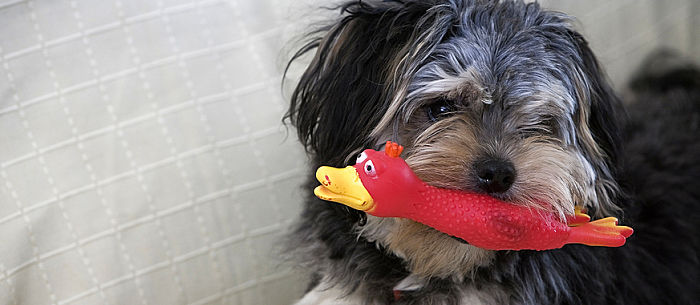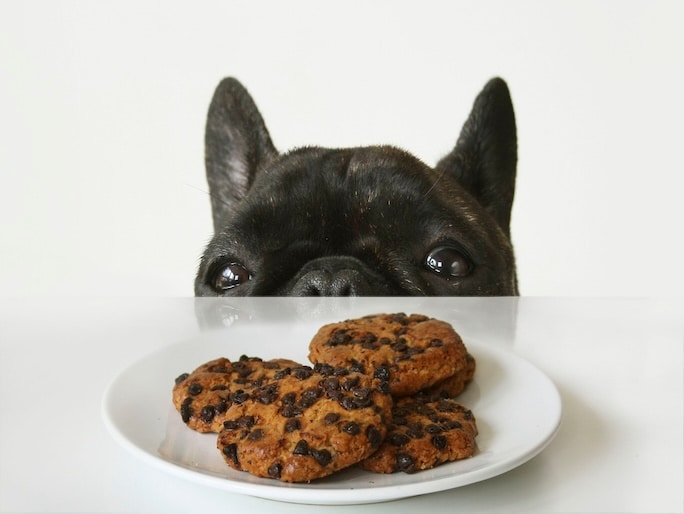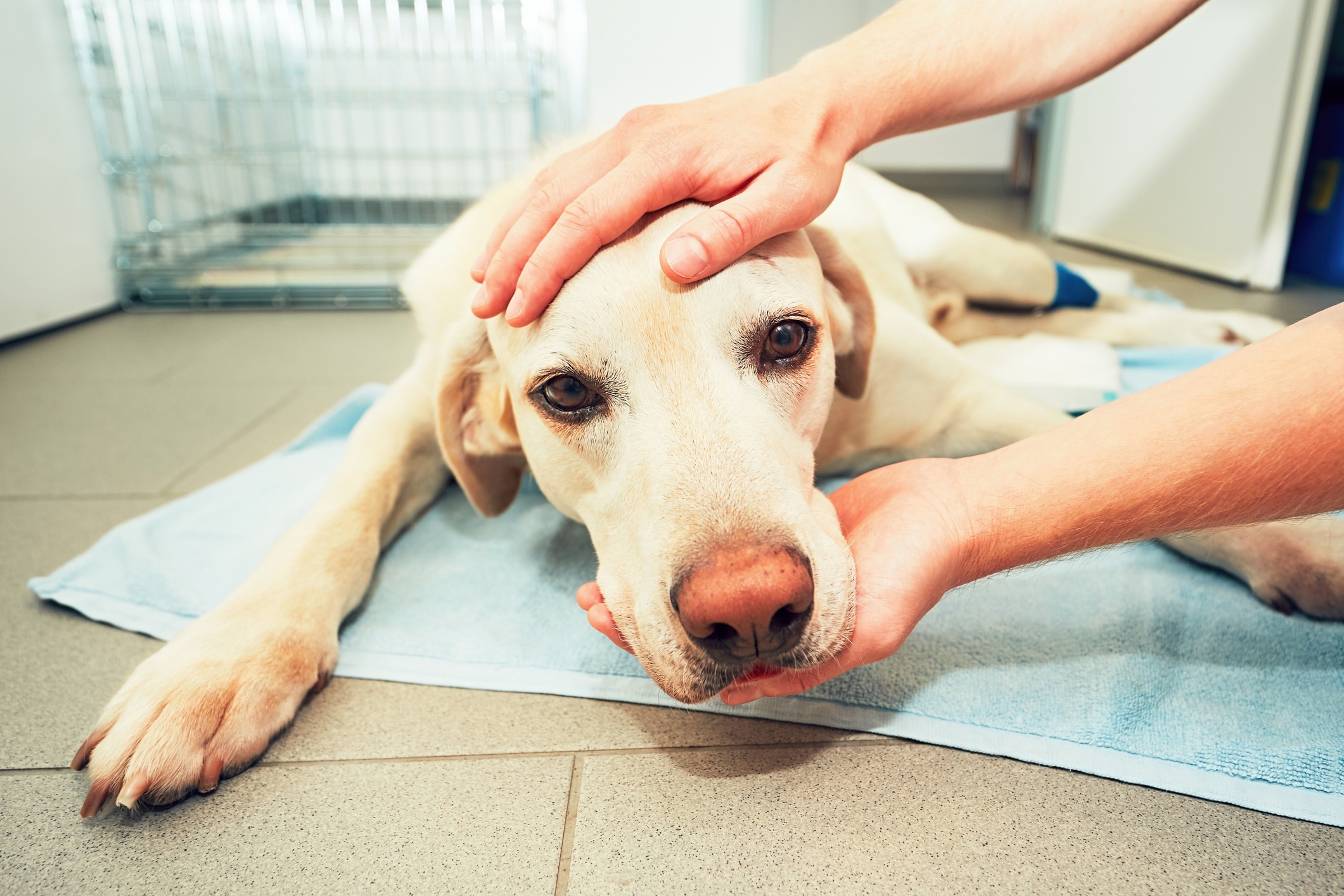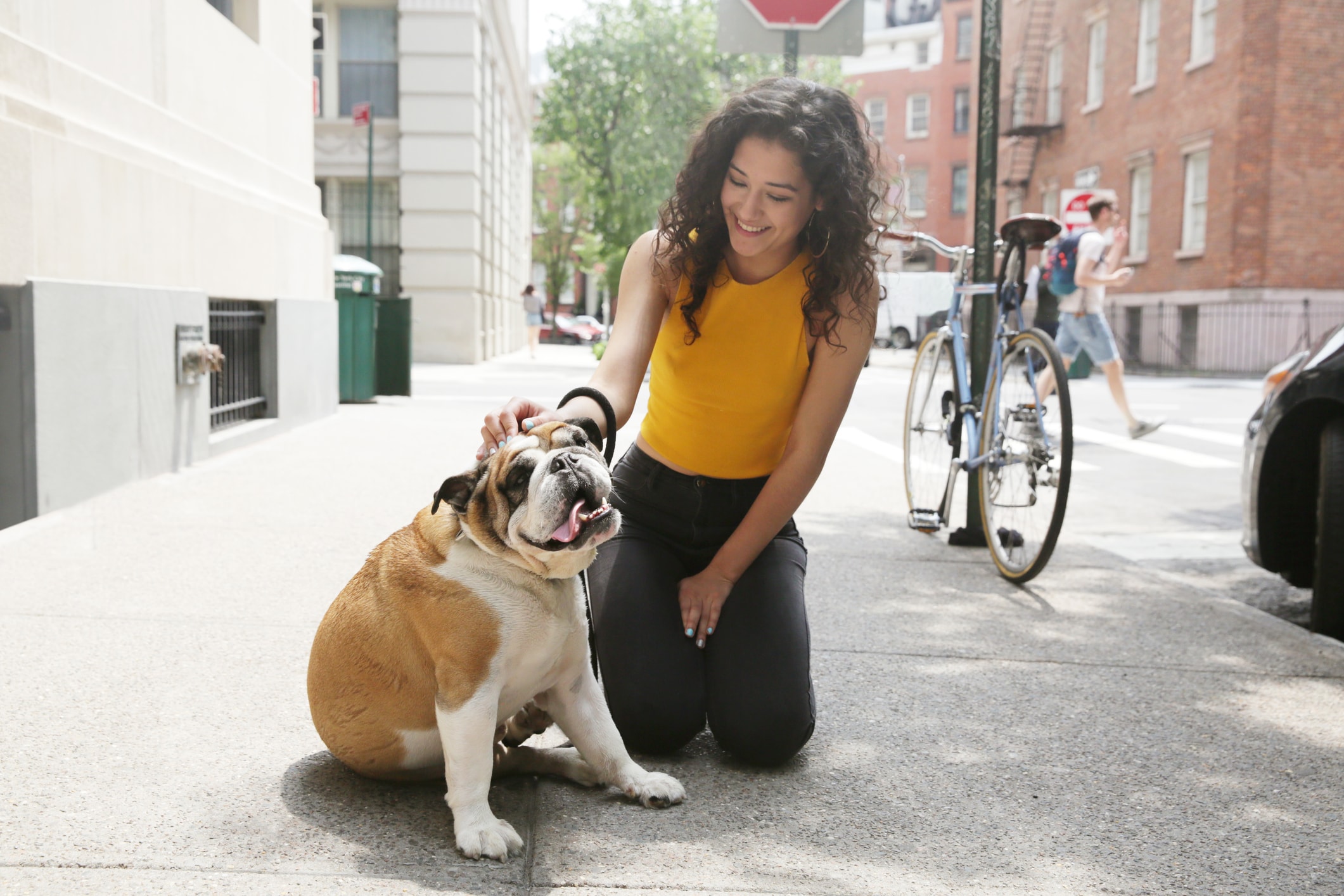Of course you love spoiling your pet! But before giving your dog a chew toy, take a closer look. Could it cause the chipping or fracturing of all-important canine teeth?
Dr. Eva Evans, a veterinarian who provides emergency after-hours care at Rivergate Pet Emergency Clinic in Nashville, says the toys and treats to avoid are those with a hard texture. “Avoid giving your dog metal, hard plastic, bones or other extremely firm objects, as these are most likely to result in a painful, broken tooth,” she says. “Oftentimes, dogs enjoy chewing so much that they will overdo it and can cause dental trauma to the mouth.”
The Worst Chew Toys and Treats for Dogs
If you can’t break it in half, it’s too hard and not a good choice for your dog. With that in mind, here are 5 things to avoid:
- Animal Chews
Bones, hooves and antlers are rigid and may lead to chipped or broken teeth, according to Dr. Evans. Bones can splinter and pierce the dog’s mouth or become a choking hazard. Some animal chews may also become sharp when the ends are whittled down by chewing.
- Tennis Balls
Although these tend to be a popular play item, Dr. Sarah J. Wooten, a veterinarian with Sheep Draw Veterinary Hospital in Greeley, Colorado, says, “The woolly nylon fuzz on tennis balls is abrasive and can wear down the enamel on dogs’ teeth.” In addition, the fuzz can harbor grit and tiny pebbles when outdoors, creating an even more abrasive texture.
- Compressed Rawhide
Beware of chemical processing and bacterial contamination with these. Also, Wooten cautions that “compressed forms of rawhide are very hard, and can cause tooth fractures.”
- Corn Starch Chews
If you’re avoiding animal chews for your dog, these may seem like healthier treats. But, Wooten says, in addition to corn being a common dog allergen, these are really hard and have been known to break teeth or become choking hazards as small pieces break off the treat.
- Ice Cubes
While you may want to help your pet cool off, don’t offer ice cubes. “They can render teeth brittle and more susceptible to fractures,” according to Dr. Deborah W. Fegan, owner of Big Creek Pet Hospital in Cleveland.
Better Chew Choices
The best chew treat and toys for your dog are large enough so as not to present a choking hazard. You’ll also want to look for those that don’t splinter and some that may even offer a dental health benefit. “Be sure to look for the Veterinary Oral Health Council (VOHC) Seal of Approval on any dental treat that you purchase,” Dr. Evans advises. “VOHC certifies treats and toys that are proven to reduce plaque and tartar on your pet’s teeth.”
Drs. Evans, Wooten and Fegan recommend the following to dog owners and dog sitters to keep canine teeth healthy:
- Rubber Toys
The smooth surfaces offer some flexibility when chewed and won’t collect tooth-chipping debris. As a bonus, they can be filled with a mix of hard kibble and soft dog food to keep the pet engaged longer with the toy.
- Fresh Produce
Seedless apple slices and raw carrots provide both vitamins and chewing entertainment.
- Dental Treats
Chews infused with medication to keep the pet’s teeth clean are a bonus. Dr. Fegan suggests products with 10 percent Chlorhexdine Gluconate, which she says provides “an antimicrobial action.”
- Bully Sticks
These jerky-style treats are chewy, so dogs aren’t at risk for hurting their teeth, according to Dr. Wooten.
- Pressed Pork Hide
Pig-based chews are high in protein, low-fat, easily digestible and softer than cow rawhide, making them ideal, say Dr. Wooten.
What To Do if Your Dog Hurts a Tooth
Be cautious examining your dog’s mouth. “The pain may cause your otherwise gentle pet to snap or even bite you,” Dr. Fegan warns. Help your pet feel better by applying a cold compress to the outer cheek near the injury, which can minimize swelling, bleeding and pain. Dr. Fegan also says it’s safe to give your pet aspirin. Seek vet instructions on proper dosage. If a tooth is loose or bleeding, get immediate attention.
“The best thing you can do is check your pet’s teeth periodically and have a full dental exam with your veterinarian annually in young pets and every six months if your pet is older,” Dr, Evans notes. “If you notice anything unusual, including blood, chipped or broken teeth, excessive wear, discolored teeth, or anything abnormal, be sure to have your pet’s mouth examined.”
For more information, read Taking a Bite out of Your Pet’s Dental Care.
Angela Tague writes about parenting, pet care and being a home-based writer. She and her husband live in Iowa with a bositerous Bull Terrier mix and a wacky Weimaraner.
* This article is for general informational purposes only. It is not intended nor implied to be providing medical advice and is not a substitute for such advice. The reader should always consult a health care provider concerning any medical condition or treatment plan. Neither Care.com nor the author assumes any responsibility or liability with respect to use of any information contained herein.





